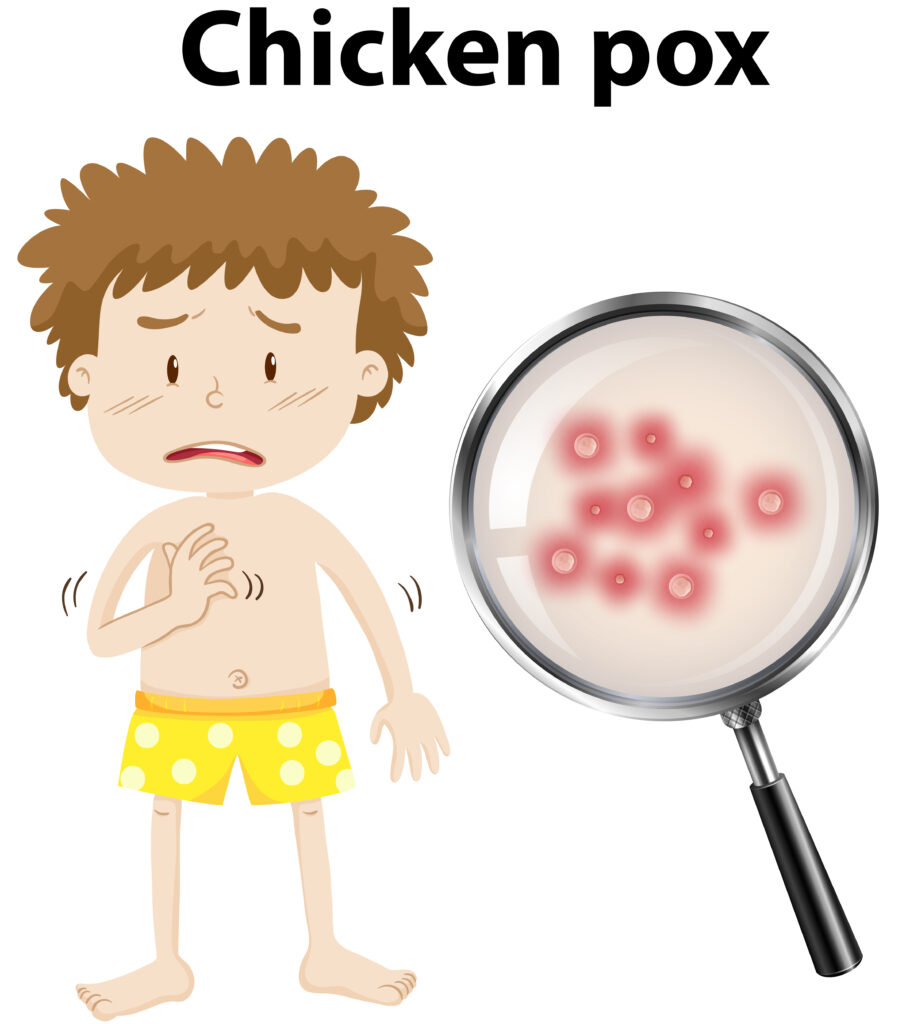Table of Contents
Can Chickenpox Result in Death in Older Adults?
Many people consider chickenpox to be a childhood disease, it used to be so common it was considered a childhood rite of passage. However, it’s still possible for older adults to have chickenpox.
Chickenpox causes spots (rashes) and can make you feel sick.
Adults usually experience worse symptoms than children. Treatments can calm the symptoms until recovery.
The severity of chickenpox may be limited by antiviral drugs, especially if the drug is started within 24 hours of the rash first starting.
What is Chickenpox?
Chickenpox is a viral infection caused by a virus known as varicella-zoster. The immune system produces proteins during the infection. These proteins are called antibodies.
These antibodies battle with the virus and also give lifelong immunity (protection) against it. Thus, it’s rare to have more than one episode of chickenpox in a lifetime.
Since the introduction of the chickenpox vaccine in the mid-1990s, cases have reduced.
Symptoms of Chickenpox
Older adults experience more severe symptoms than children. An adult suffering from chickenpox may first experience common symptoms of a viral illness which may include:
- Loss of appetite
- Body itching
- Fatigue
- Cough
- Fever
- Sore throat
Usually, development of chickenpox blisters starts from the chest, back, or face. From there, they begin to spread to other areas, including the eyelids, genitals, and sometimes, inside the mouth.
It is possible to have chickenpox even after receiving the chickenpox vaccine. In this case, a person will have mild symptoms which may include a few chickenpox lesions and viral illness symptoms.
A person who has chickenpox is still contagious until all the blisters on the body have scabbed out. It takes 7 to 14 days for this to happen.
Complications of Chickenpox in older adults
Chickenpox usually causes a lot of discomforts. If individuals are left unvaccinated, this condition can lead to serious complications, hospitalization, and sometimes even death. Some complications are:
- Pneumonia
- Bacterial infections
- Toxic shock syndrome
- Bleeding problems
- Dehydration
- Encephalitis, or inflammation of the brain
Chickenpox and Pregnancy
If a pregnant woman is infected with chickenpox, she and her unborn baby are at risk for serious complications like;
- Pneumonia
- Low birth weight
- Birth defects like abnormal limbs and brain development
- Life-threatening infection
Prevention of Chickenpox
As recommended by the Center for Disease Control and Prevention (CDC), two doses of chickenpox vaccine are to be administered to children, adolescents, and older adults who have never been vaccinated and have never had chickenpox.
The chickenpox vaccine is known to prevent chickenpox in at least 98 percent of people who admit the two recommended doses.
People that couldn’t take the vaccine can try to avoid the virus by limiting contact with infected people (this can be difficult sometimes).
How to treat Chickenpox
The following treatments can ease the symptoms while your immune system deals with the virus.
- Drinking enough water to avoid a lack of fluid in the body.
- Taking paracetamol to ease fever (high temperature), pains, and headaches.
- Soothing creams like calamine lotion will ease itching.
- Antihistamine tablets taken before going to bed at night may help you to sleep if itching is a problem.
- Antiviral drugs can limit the severity of chickenpox. These drugs don’t kill the virus, but they stop them from multiplying.
Is Chickenpox the same as Shingles?
Shingles are also caused by varicella-zoster virus. After causing chickenpox, the virus can hide in the body. After some years or even decades, the virus can reactivate and cause shingles.
Simply put, shingles is an infection of a nerve and the area of skin supplied by the nerve. It causes rashes and pain in a band-like local area along the affected nerve.
It is estimated that about 1 in 5 people has suffered from shingles at a time in their lives. It is most common in people over the age of 50 but can happen at any age,
The reason why shingles may occur is that the virus (varicella-zoster) doesn’t fully go away after you’ve had chickenpox. Some virus particles remain in the nerve roots next to your spinal cord. While in the nerve roots, they stay inactive, causing no harm there, and causing no symptoms to show up.
There’s a separate vaccine that is recommended for older adults of 50 years and above that can be administered to help prevent the virus from reactivating and causing shingles.
NOTE: You can get infected with chickenpox by exposing yourself to a person suffering from shingles if you haven’t had chickenpox yourself in the past. However, you cannot be infected with shingles by exposing yourself to a person with chickenpox or be infected by a person with shingles.
Conclusion
Full recovery is very common and serious complications are rare. That notwithstanding, complications are more common in older adults than in children.
Furthermore, pregnant women and people with a poor immune system, like those on chemotherapy are more likely to have complications.
For this reason, it is expedient you see a doctor immediately you notice any of the symptoms listed above as an early discovery is also vital in avoiding complications.
Read also: Can Shingles be Contagious to Older Adults?
Frequently Asked Questions
Why is it bad for adults to get chickenpox?
Complications are more common in older adults than in children.
Can you get chickenpox in your 60s?
It’s still possible for older adults to have chickenpox.
Can you die if you get chickenpox at an old age?
Since the introduction of the chickenpox vaccine in the mid-1990s, cases have reduced. However, if individuals are left unvaccinated, this condition can lead to serious complications, hospitalization, and even death.
Final Thoughts:
Although Chickenpox may resolve even without treatment. It is often better to have sickness in older adults checked out by qualified medical personnel as there is a higher risk of complication.
Featured images from freepik.com by Brgfx.

